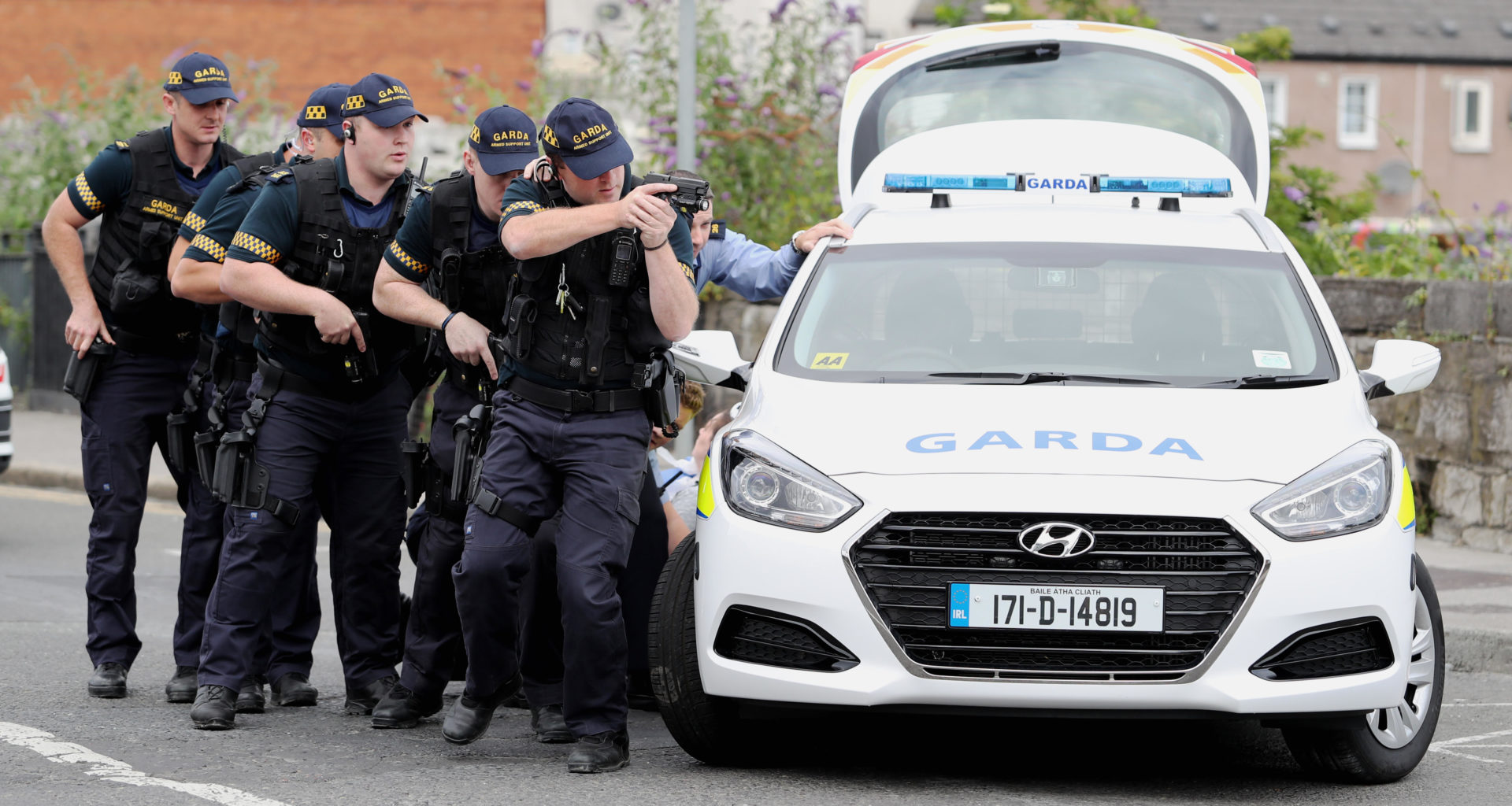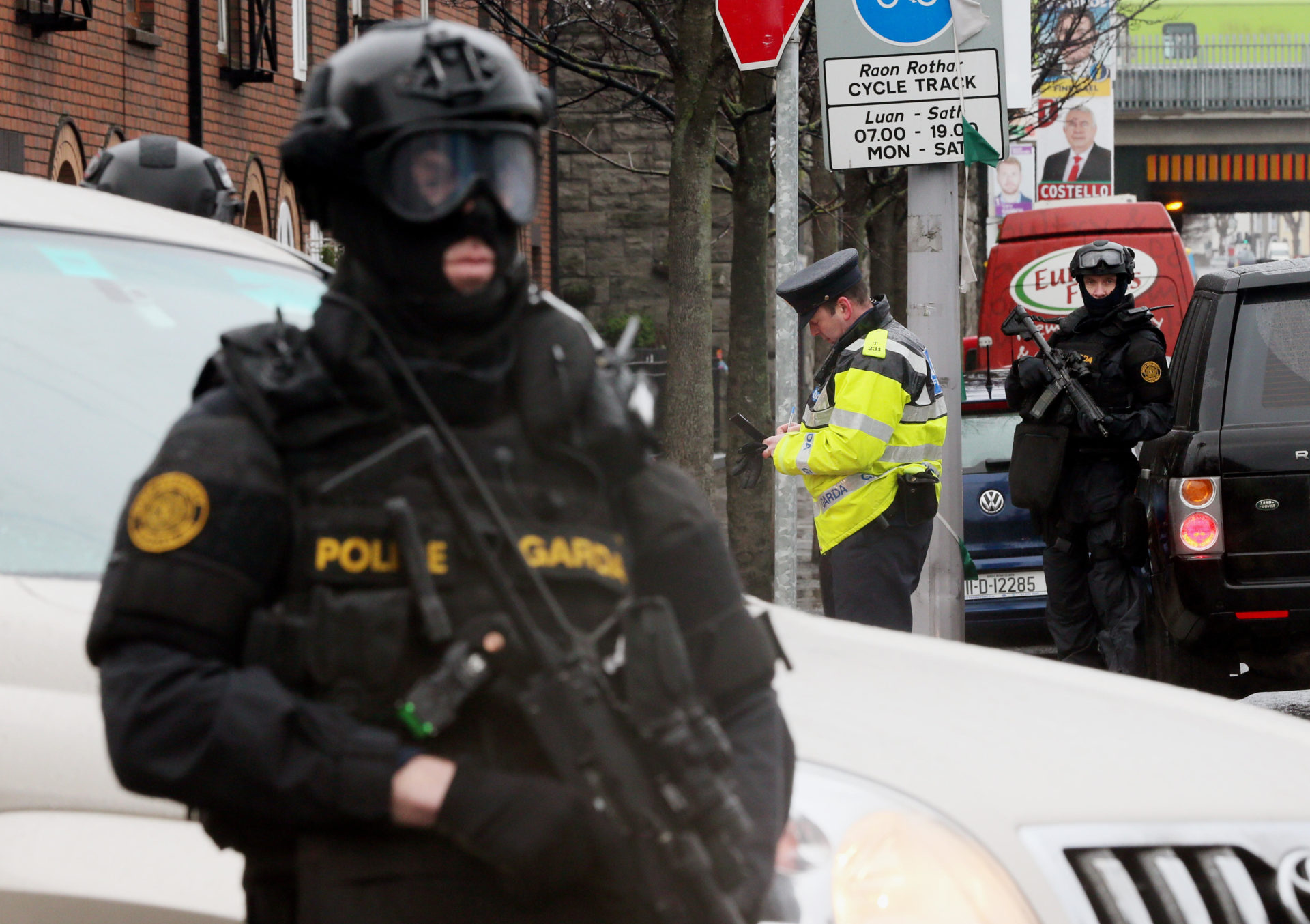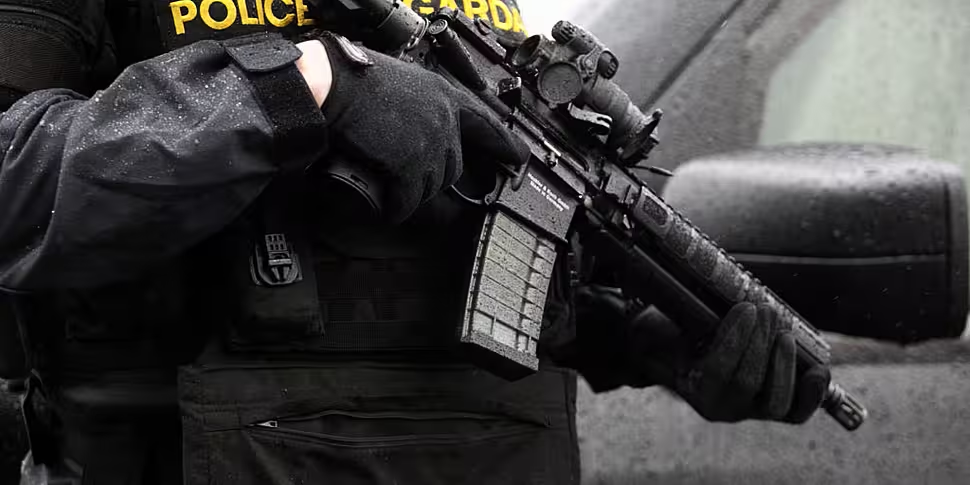Armed Gardaí patrolling the streets of Dublin would not make many people feel safer, a leading psychiatrist has said.
Recently, there have been a number of high profile crimes in the capital and Justice Minister Helen McEntee has announced measures to boost Garda visibility and deter crimes.
Although An Garda Síochána had announced, “Regional Armed Response Units.. will be deployed to enhance Garda visibility in the city centre”, the Minister said armed Gardaí on street corners was “not what we're talking about here.”
Speaking on The Pat Kenny Show, professor and consultant psychiatrist Brendan Kelly said armed patrols would divide opinion.
“There is evidence going both ways on this,” he said.
“Sometimes people feel less secure when there is a Garda or police presence - particularly an armed police presence, it seems to ratchet things up a level.
“On the other hand, the streets probably are that little bit safer with that presence but it doesn’t always feel that way.
“It can feel like the whole thing is escalating rather than being controlled.”
 Members of the Garda Armed Support Unit take part in a simulated anti-terror operation at the Docklands railway station in central Dublin.
Members of the Garda Armed Support Unit take part in a simulated anti-terror operation at the Docklands railway station in central Dublin.According to CSO figures, there was a 7% increase in attempts or threats to assault or murder someone in the first three months of 2023, compared to 2022.
Reported crime has also increased since the pandemic; there were 3,660 reported sexual offences in the first quarter of 2023 - a slight increase in comparison to the 3,312 reported in the first three months of 2019
In the same period, the number of thefts and related offences rose from 67,295 to 69,340.
The number of attempts or threats to murder, assault or harrass an individual climbed from 20,799 to 23,489.
Despite this, Professor Kelly said people’s perception of the safety of their neighbourhood is rarely influenced by official statistics.
“Statistics are not always 100% reliable,” he said.
“Neither do they shape our sense of security or our sense of fear nearly as much as you would imagine.
“One might imagine that in an area or time of relatively low crime, people would feel more secure - but that’s simply not the case.
“Statistics are only one part of it; other factors like emotions and how we use information and how we behave and interact with each other seem to be far more important in generating a sense of security, on the one hand, or a sense of fear on the other.”
 Armed Gardaí from the forces Emergency Response Unit on patrol in North Inner City Dublin as gang violence has resulted in two murders in four days.
Armed Gardaí from the forces Emergency Response Unit on patrol in North Inner City Dublin as gang violence has resulted in two murders in four days.Professor Kelly said some groups within society will always feel more vulnerable to crime than others.
“We know that certain people like older adults, people in ethnic minorities and women have a higher sense of fear to begin with,” he said.
“So, when you get news reports of these kinds of episodes, they either fall into the mind of a person who was attuned to risk or some other people simply dismiss them… We all know people who worry more and feeds into the overall sense of risk in relation to crime as well.”
Minister McEntee has described Dublin as a city that has "problems that we need to address" but also one that is overall "safe".
Main image: Pictured members of the Garda ERU ( Garda Emergency Response Unit) stand by a Garda Checkpoint in Dublin. Photo: Sam Boal/Rollingnews.ie









